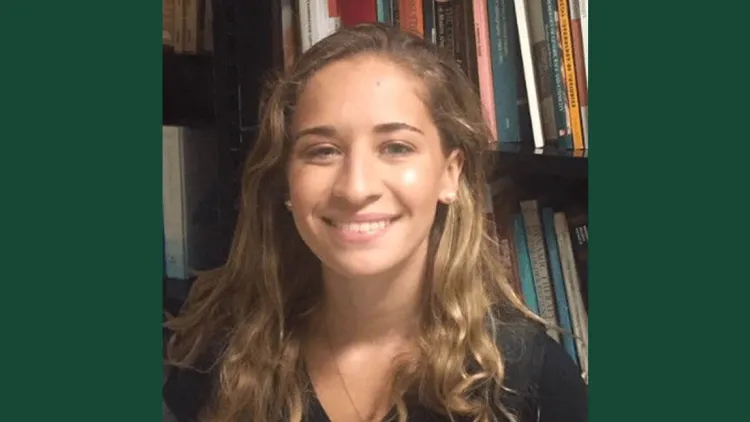
Rising senior Emily Young applied what she’s learned in her developmental psychology and neuroscience courses through a summer research project investigating how children respond to stress. Drawing on an analogy coined by Dr. Thomas Boyce of the University of California, San Francisco, she describes how children can be classified as “dandelions” (those who are fairly resilient in the face of adversity), or “orchids” (children who are sensitive and strongly reactive to their environment, whether positive or negative). “I took data from an earlier study where interviewers talked with parents, asking them how their kids responded to stress, and how they might help them develop coping strategies,” Young explained. “The best response would consider the dandelion/orchid question. A big part of what I’m looking at is peer victimization, like bullying.” She’s conducing her research project, titled “Is Your Child Even Listening to You?: Relationship between Socialization of Coping and Coping Behavior, Moderated by Stress Reactivity,” through Professor Dianna Murray-Close’s Social Development Lab.
Young received key support from the College of Arts and Sciences Summer Undergraduate Research Fellowship (SURF). The program provides a $4000 living stipend and additional money for research expenses. “I was beyond ecstatic when I got it,” Young said. “It’s allowed me to live in Burlington for the summer to concentrate on my research.”
A native of Western Massachusetts, Young was impressed by the physical beauty of Burlington and the friendly, open vibe on campus during her first UVM visit. During her first semester she discovered a fascination for exploring the roots of human behavior. “I love biology, which is why I decided on a neuroscience minor. Professor Murray-Close, who is amazing—one of the best professors I’ve ever had—is familiarizing me with the social development piece.”
Young eventually sees herself going to graduate school and working in a clinical setting, but plans on taking a gap year after graduation. “I’d like to see where this research leads, and explore what my niche will be."